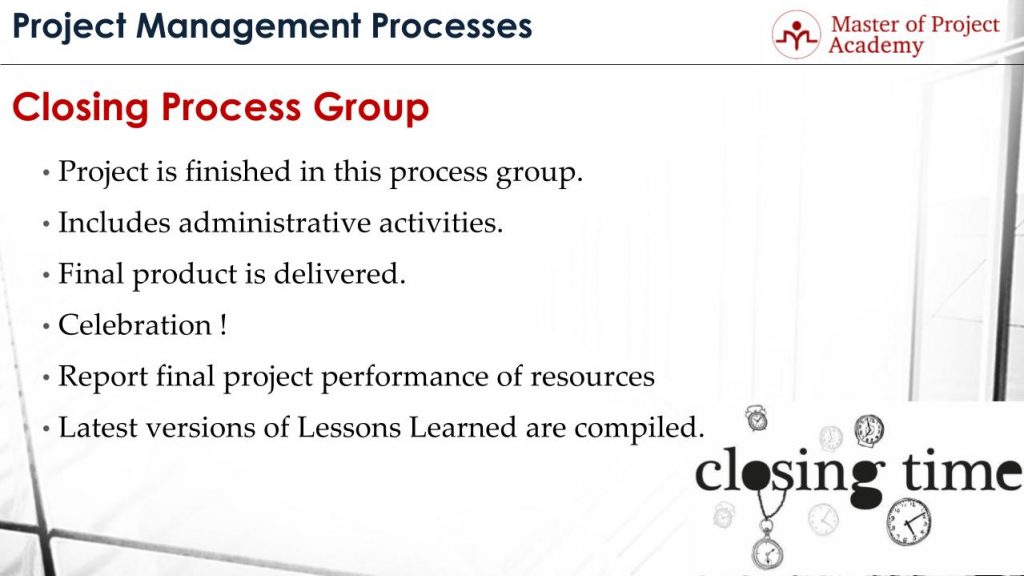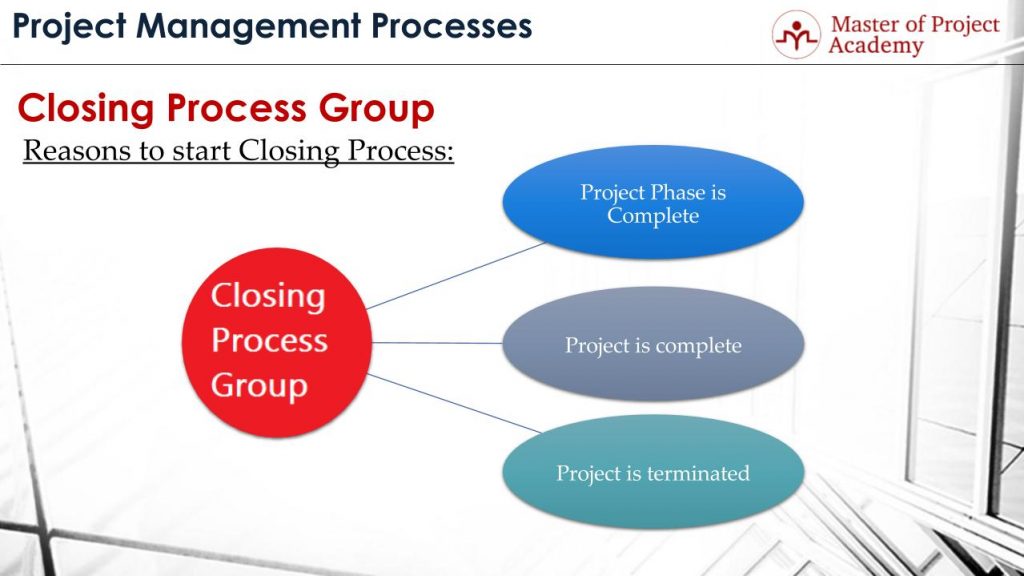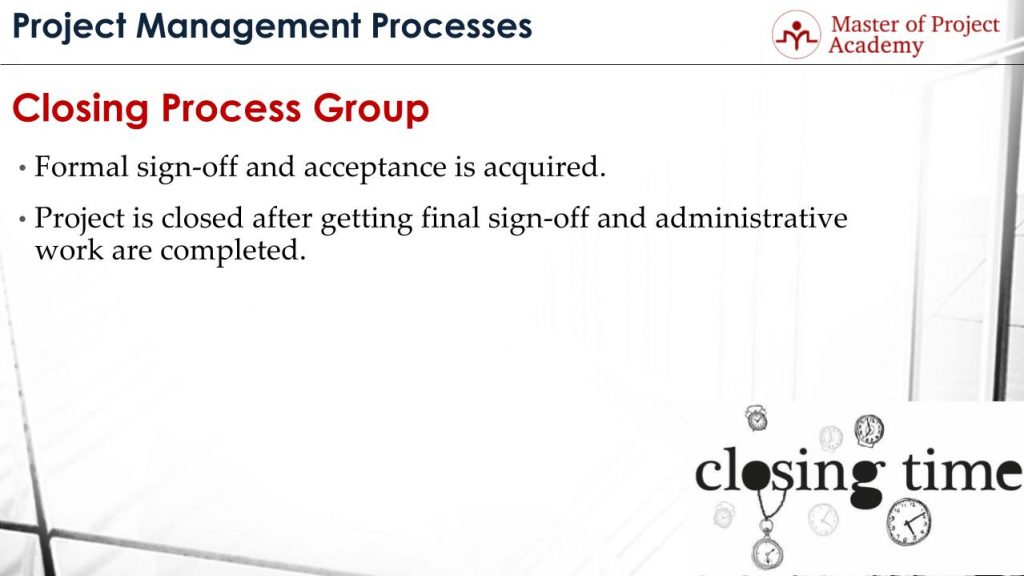The effort made by the project team during the whole project life cycle doesn’t end after the project executing process group. After finishing the actual work of the project, you should be also aware that there’s a phase called the project closing process, as mentioned in PMP certification training. Can you close the project without getting acceptance of the customer? Of course not! This step is one of the 8 steps of project closing.
Attend our 100% Online & Self-Paced One-Hour Free PMP Training.
In this article, we are going to go through every step of the project closing. Also, explain the various reasons why the project closure phase is initiated.
Let’s begin by giving you the objective of the project closure process. More detailed information about the project management process groups can be found in the PMP course.
What is the objective of Project Closing?
Project closure processes ensure the successful completion of the project. Therefore, once the project deliverables are completed and delivered, accepted by the customer, project closure processes take place to close the project.
What is Done During the Project Closing Phase?
The project closing phase has 8 major steps to follow:

- The project is finished in the project closing process group. During project closure phase, deliverables that need to be completed, payments that need to be made to the suppliers, requirements check whether they all have been met etc. are done. Because these are criteria for project completing and project closure.
- Includes administrative activities. Project closing includes written approvals, documentation, and communication with different parties. For instance, sign-off of the customer is acquired, payments to the suppliers are completed etc.
- The final product is delivered. During project execution phase, all deliverables of the project might have been completed. And when it comes to project closing phase, the final product must have been delivered and accepted by the customer.

- Report final project performance of resources. Employee salary increases are determined mainly based on the employee performance in most of the organizations. Therefore, upon project closing and completion, the final performance of the project team members must be reported. And overall project performance of a project resource must be taken into account when promoting, determining salary increases etc.
- Lessons learned is gathered throughout the project. The latest versions of Lessons Learned are compiled during project closing phase. After collecting inputs from stakeholders, and finalizing the lessons learned, this final document is archived in the organizational process assets of the company.
- Celebration! Success must be appreciated and celebrated. If the project has been finalized and closed successfully, the project team must be rewarded and this success must be celebrated. This will encourage all employees in the organization for future successes.

- Formal sign-off and acceptance are acquired. The most important step of the project closing phase is getting formal sign-off and acceptance of the customer. Because projects are initiated based on a business need and customer request. Therefore, if the customer does not accept the final outputs and product, a project cannot be closed.
- The project is closed after getting final sign-off and administrative work is completed. After getting final sign-off of the customer, there will be procedures and paperwork within the organization for the official project closure.
When does the project closing phase begin?
In which cases you can start project closing processes? There are 3 main reasons to trigger project closing processes:

- The first one is a project phase completion. If there is a large project with several phases, during the closure of each phase, project closing processes are triggered.
- The second one is project completion.
- The third one is a project termination. Project termination is actually closing the project since the project objectives will not be met anymore or the business case which was the reason for initiating the project is not valid anymore. Even if a project is terminated, reasons for termination, last status of the project and documents must be archived in company records respectively.




